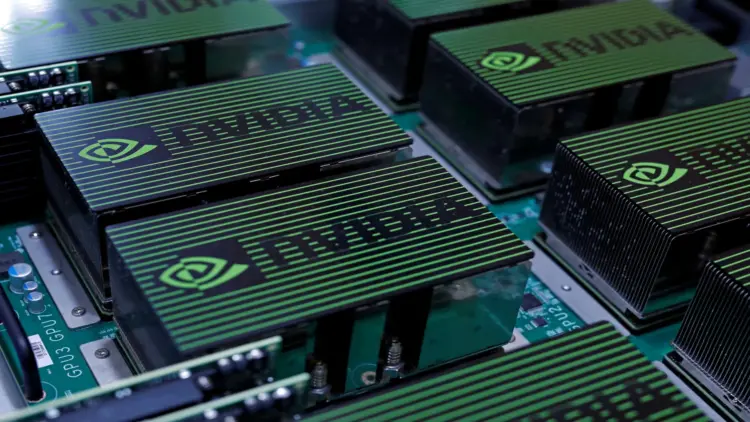China’s escalating security concerns over Nvidia’s H20 chips represent a significant escalation in the ongoing US-China technology war, as Beijing leverages state media to question the safety and integrity of American-designed artificial intelligence hardware specifically created for the Chinese market. This unprecedented public criticism from Chinese authorities signals a potential shift toward rejecting Western semiconductor technology in favor of domestic alternatives, while highlighting the complex intersection of national security, technological sovereignty, and commercial interests in the global AI chip market. The controversy underscores how geopolitical tensions are increasingly shaping technology adoption decisions, with Chinese officials now openly challenging the security credentials of products from one of America’s most valuable technology companies.
State Media Security Allegations
Nvidia’s NVDA.O H20 chips pose security concerns for China, a social media account affiliated with China’s state media said on Sunday, after Beijing raised concerns over backdoor access in those chips.
The H20 chips are also not technologically advanced or environmentally friendly, the account, Yuyuan Tantian, which is affiliated with state broadcaster CCTV, said in an article published on WeChat.
“When a type of chip is neither environmentally friendly, nor advanced, nor safe, as consumers, we certainly have the option not to buy it,” the article concluded.
Export Restrictions and Market Development
H20 artificial intelligence chips were developed by Nvidia for the Chinese market after the U.S. imposed export restrictions on advanced AI chips in late 2023. The administration of U.S. President Donald Trump banned their sales in April amid escalating trade tensions with China, but reversed the ban in July.
China’s cyberspace watchdog said on July 31 that it had summoned Nvidia to a meeting, asking the U.S. chipmaker to explain whether its H20 chips had any backdoor security risks – a hidden method of bypassing normal authentication or security controls.
The timing of China’s security allegations against Nvidia’s H20 chips appears strategically calculated to coincide with broader efforts to reduce dependence on American technology while promoting domestic semiconductor alternatives. Chinese authorities have historically used security concerns as justification for restricting foreign technology companies, from telecommunications equipment to software platforms, as part of a broader strategy to achieve technological self-sufficiency. This pattern suggests that the H20 chip controversy may be less about genuine security vulnerabilities and more about creating market conditions favorable to Chinese chip manufacturers who are rapidly developing competitive AI processing capabilities. The coordinated nature of the criticism across multiple state media outlets indicates a deliberate campaign to undermine confidence in American semiconductor technology while positioning Chinese alternatives as more trustworthy and secure options for domestic consumers and businesses.
Company Response and Ongoing Tensions
Nvidia later said its products had no “backdoors” that would allow remote access or control. The company reiterated its position on Sunday when asked for a comment on Yuyuan Tantian’s article, saying its chips had no backdoors.
In its article, Yuyuan Tantian said Nvidia chips could achieve functions including “remote shutdown” through a hardware “backdoor.”
Yuyuan Tantian’s comment followed criticism against Nvidia by People’s Daily, another Chinese state media outlet.
In a commentary earlier this month, People’s Daily said Nvidia must produce “convincing security proofs” to eliminate Chinese users’ worries over security risks in its chips and regain market trust.
The Nvidia H20 chips security warnings by China indicate a high point of competition in technology in the global environment where commercial motive is playing second fiddle in access of markets and technology adoption based on national security risks. This standoff marks the start of an even more disintegrated world of semiconductors where geopolitical loyalties will be the driving factor when it comes to technology preferences, which might compel companies and nations to embrace one of the Chinese or American technology ecosystems.
GCN.com/Reuters.


